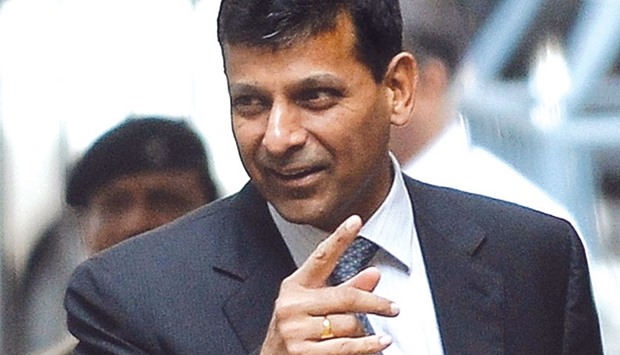
Prashanth
Reserve Bank of India (RBI) governor Raghuram Rajan, referring to the controversial new methodology for calculating India’s GDP growth, said a better computation of growth is essential to capture the net gains to the economy.
“There are problems with the way we count GDP which is why we need to be careful sometimes just talking about growth,” Rajan said in his convocation address at the Indira Gandhi Institute of Development Research, an institution promoted by the RBI, yesterday.
“We have to be a little careful about how we count GDP because sometimes we get growth because of people moving into different areas. It is important that when they move into newer areas, they are doing something which is adding value,” he said.
The controversy started when advance estimates of GDP for 2014-15, released in February last year, projected the country’s growth during the year at 7.4%. Changing the base year to 2011-12 from 2004-05 in January, the CSO (Central Statistical Office) said that India’s real GDP, that is adjusted for inflation, grew 6.9% in 2013-14 instead of the earlier projected 4.7%, and by 5.1% in the year before compared to 4.5%
The new numbers seemed contradictory when compared with other economic indicators such as revenue growth of listed firms, expansion of banks, the index of industrial production numbers as well as real challenges confronting India Inc. such as weak demand, high debt and low earnings.
Critics pointed to the new methodology showing that manufacturing grew at 5.3% in 2013-14 compared to 0.7%, which, they maintained, was hard to reconcile with the ground level reality.
“With a marginal expansion in manufacturing, the growth figures of 7%-8% are absolutely not credible,” said noted economist Ashok Desai, who was part of the prime minister’s economic advisory council in the first few years of liberalisation (1991-93).
Finance Minister Arun Jaitley had welcomed the debate on the new series at The Economist magazine’s conference here last year.
Seeking to clarify that the government had no role in the matter as the statistics office was an independent organisation, Rajan said: “Let the exercise as well as the debate continue, which is always welcome in democracy.”
A committee headed by the National Statistical Commission chairman Pronab Sen has been set up to examine the estimation methodology. But critics say he has been a vocal supporter of the new series, and hence question if the findings will be bipartisan.
